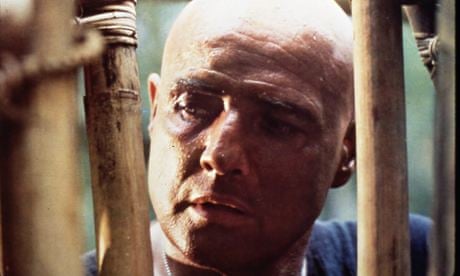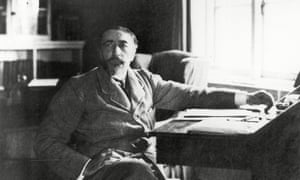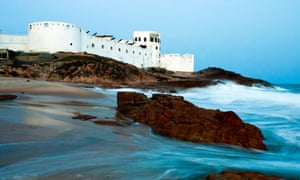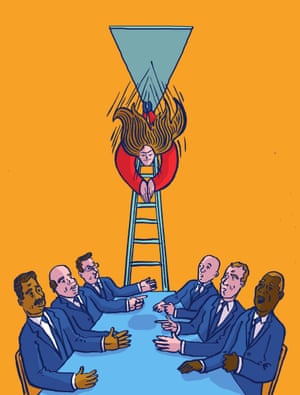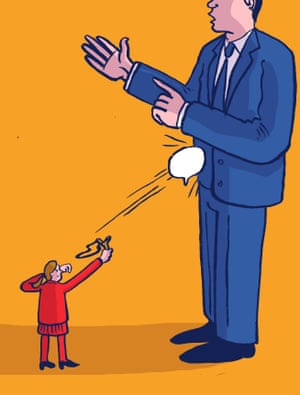Amazon executives will not be present on Tuesday when three other major internet companies endure a grilling before Congress. But it may just be a matter of time before Washington’s new appetite for regulating the digital economy reaches the e-commerce giant.
Lawyers for Google, Facebook and Twitter will occupy this week’s spotlight in front of the Senate intelligence and judiciary committees, which are probing the companies’ unwitting role in Russia’s 2016 election meddling. Already, there is talk of legislation requiring them to disclose more about their operations.
The controversy over the industry’s dissemination of Russian “fake news” highlights a broader souring of attitudes toward the online platforms, triggered by unease over their sheer size and power, which spans the political spectrum. From progressives like Elizabeth Warren, Massachusetts senators, to Steve Bannon, President Donald Trump’s former chief strategist, who runs the nationalist media site Breitbart, there is growing support for reining in, or even breaking up, the digital groups that dominate the US economy.
“The worm has turned,” says Scott Galloway, a marketing professor at New York University and author of The Four: the Hidden DNA of Amazon, Apple, Facebook and Google. “No doubt about it.”
Though unaffected by the Russia allegations Amazon — whose $136bn in revenues last year topped the combined sales of Google parent Alphabet and Facebook — is a target of demands for more assertive antitrust enforcement. Its dominance has also raised questions about whether existing legislation needs to be rewritten for the internet age.
The online retailer’s relentless expansion into new businesses, including groceries and small business lending, and its control of data on the millions of third-party vendors that use its sales platform, warehouses and delivery services, have some analysts likening it to a 21st century version of the corporate trusts such as Standard Oil that throttled American competition a century ago.
“Amazon has big antitrust problems in its future,” says Scott Cleland, a technology policy official in the George HW Bush administration and president of Precursor, a research consultancy. “If there is a minimally interested, fair-minded antitrust effort in the Trump administration, Amazon’s got trouble.”
For now, Mr Cleland’s remains a minority view. Most experts say the company has yet to engage in the classic anti-competitive behaviour that the antitrust laws are designed to prevent. Under the prevailing interpretation of this doctrine, which prizes consumer welfare above all else, champion price-cutter Amazon has little reason to worry. Indeed, US regulators this summer performed only a brief review before approving Amazon’s nearly $14bn acquisition of the upmarket grocer Whole Foods.
Amazon and the other platforms remain popular with consumers, thanks to their low prices or “free” services. But companies that were once seen as avatars of American innovation and achievement are now increasingly treated with scepticism. Mr Bannon has said that companies such as Google and Facebook are so essential to daily life that they should be regulated as public utilities.
The digital platforms “dominate the economy and their respective markets like few businesses in the modern era”, says the bipartisan New Center project of Republican William Kristol and Democrat Bill Galston. It notes that nearly half of all e-commerce passes through Amazon while Facebook controls 77 per cent of mobile social traffic and Google has 81 per cent of the search engine market.
The online retailer stands alone in its cross-market reach, dominating product search, hardware and cloud computing while also serving as an indispensable conduit for other vendors to reach consumers, says Mr Galloway. Last year, 55 per cent of product searches began on Amazon, topping Google.
“They’re winning at everything,” he says. “This company is firing on all 12,000 cylinders.”
Yet even as calls to break up the nation’s big banks after the global financial crisis have faded, talk that the digital giants have grown too large gets ever louder. The downside of economic concentration features prominently in the Democratic party’s “Better Deal” programme for the 2018 Congressional elections. It calls for an intensification in antitrust enforcement and blames stagnant wages, rising prices and disappointing growth on insufficient competition.
An anti-monopoly push will “almost certainly” be a major part of the 2020 presidential campaign, predicts Barry Lynn of the Open Markets initiative.
Silicon Valley’s tradition of funding the party could complicate the Democrats’ anti-monopoly push. In the 2016 election, the internet industry gave 74 per cent of its $12.3m in congressional campaign contributions to Democrats. Internet company executives and their corporate political action committees, which pool individual contributions in accord with the federal prohibition on direct corporate political spending, also gave Hillary Clinton’s campaign more than $6.3m while Mr Trump pulled in less than $100,000, according to the Center for Responsive Politics.
Individuals and the PACs associated with Google parent Alphabet topped the industry’s list of total political contributors with $8.1m while Amazon ranked fourth with about $1.4m.
Amazon has moved a long way from its roots since launching two decades ago to sell books and nothing but books. Now, it sells just about everything to everybody: nearly 400m products including its own batteries, shirts and baby wipes. It operates a media studio and provides cloud computing space to customers such as the Central Intelligence Agency while running the Marketplace sales platform for other vendors, a delivery and logistics network and a payment service. The company Jeff Bezos launched in 1994 also now makes popular electronics, including the Kindle ereader and the Alexa voice-activated device.
Its growth has been astronomical. Amazon expects to record at least $173bn in annual sales this year — that would nearly double its 2014 figure. It employs 542,000 workers, more than twice its mid-2016 payroll, thanks in part to the Whole Foods deal, and its $1,100 share price has roughly doubled in just 20 months.
By almost any measure, Amazon is a fantastically successful company. Maybe too successful, its detractors say. Mr Trump has periodically suggested antitrust action against the online giant, saying of Mr Bezos last year: “He’s got a huge antitrust problem because he’s controlling so much; Amazon is controlling so much.”
In August, the president returned to the subject, taking aim at the company’s impact on bricks-and-mortar retailers. “Towns, cities and states throughout the US are being hurt — many jobs being lost!” he tweeted.
Still, most politicians regard Amazon as a potential economic boon. Some 238 communities answered the company’s request to identify sites for its planned second headquarters. It is not hard to see why: the $5bn project will directly create work for 50,000 people, plus “tens of thousands of additional jobs and tens of billions of dollars in additional investment in the surrounding community”, Amazon says.
Even critics of the company’s size, such as Senator Cory Booker of New Jersey, overcame their concerns. “Amazon would make the right business choice by coming here,” Mr Booker told a press conference last month in Newark.
Amazon, which declined to comment for this story, recognises its potential political problem. The company is on track to spend nearly $13m this year on lobbying the federal government compared with just $2.5m five years ago. In 2016 it added an antitrust lawyer, Seth Bloom, with experience on Capitol Hill and in the justice department.
Though the Trump administration approved the Whole Foods purchase, Amazon’s antitrust concerns have not evaporated. Congressman Keith Ellison, deputy chairman of the Democratic National Committee, who favours a break-up of all the digital players, says the online retailer should spin off its $12bn-a-year cloud computing business known as Amazon Web Services.
“I do think they should be forced to sell off huge parts,” he says. “They’re too big.”
The view is echoed by Mr Kristol, a prominent former official in the Reagan and George HW Bush administrations, who says the tech giants’ dominance hurts workers, consumers and the overall economy. His New Center project, aimed at overcoming political polarisation, supports tougher antitrust enforcement to address “monopolistic behaviour” in the technology sector.
Even among pro-market conservatives, sentiment is shifting on the need for greater government intervention. “People are at least open to the argument that concentration of power is a problem even if there’s no immediate cost paid by consumers,” Mr Kristol says.
US law does not prohibit monopolies so long as they arise through legitimate means. But companies are not permitted to exploit their dominance in one market to control another.
Competition authorities in the EU have moved more aggressively to corral the internet groups. Earlier this month the EU ordered Amazon to pay $290m in back taxes to Luxembourg after Margrethe Vestager, the EU competition chief, said the online retailer had benefited from special treatment.
Ms Vestager has also gone after American internet companies on antitrust grounds, levying a €2.4bn fine on Google in June and reaching a negotiated settlement with Amazon over its ebook distribution contracts. In May, Amazon agreed to scrap contract clauses requiring publishers to offer it terms that were as good or better than those offered to its competitors.
Amazon’s critics say that its role as an essential e-commerce platform for more than 2m other vendors and its control of data on their sales warrant government action. Last year, in a speech that ignited the Democrats’ renewed interest in anti-monopoly efforts, Ms Warren said companies like Amazon provide a platform “that lots of other companies depend on for survival”, adding, “the platform can become a tool to snuff out competition.” For its part, Amazon says it faces “intense competition”.
Critics remain unconvinced. Its control over a vast cache of customer data gives it “unprecedented . . . advantages in penetrating new industries and new markets”, according to Amir Konigsberg, chief executive and co-founder of Twiggle, which sells search and analytics software to Amazon competitors.
There’s no question that the company has grown through innovation and by meeting customer needs. But gobbling up rivals and would-be rivals has also been part of the equation. Since 2005, Amazon has acquired more than 60 companies including some that were at first reluctant to sell, such as Zappos, the online shoe retailer.
“It’s a dominant platform and a vertically integrated dominant platform,” says Lina Khan, author of an influential Yale Law Journal article earlier this year that ignited the debate. “It acts as a gatekeeper . . . It’s closing off the market to new entrants.”
Ms Khan says Amazon also has priced goods and services — such as its unlimited two-day Amazon Prime delivery service — below cost. By prioritising growth over profits, the company has unfairly squeezed competitors, she says.
Though Mr Cleland says antitrust enforcers could make a case against Amazon under the prevailing interpretation of US law, most analysts say a genuine push to break up or constrain the tech giants requires rethinking the antitrust orthodoxy of the past 40 years. The so-called Chicago School of antitrust theory, which focuses on consumer prices and innovation, is ill-equipped to cope with the internet world’s structural tendency to produce winner-takes-all outcomes.
“The rhetoric around consumer prices can disable antitrust law,” says Ms Khan. “These platforms present new issues.”
